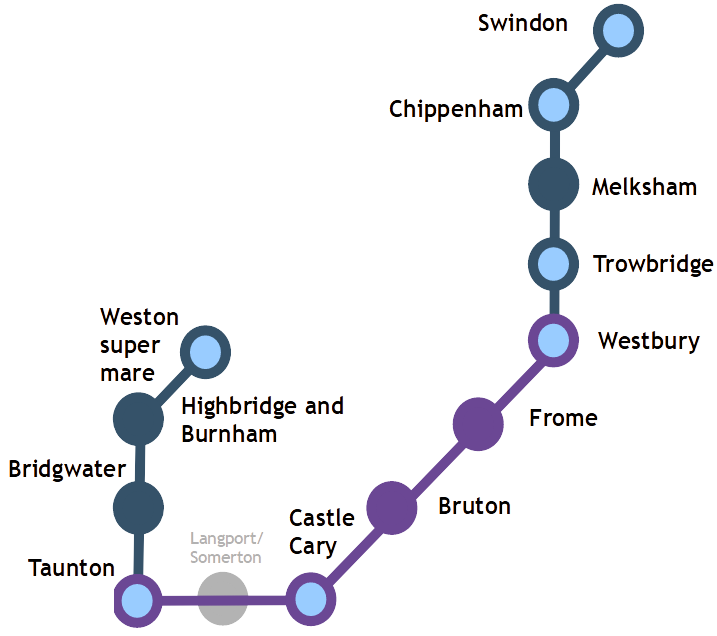Plans to launch the UK’s first co-operatively managed rail service has moved a step closer after Go-op – a co-op campaigning for rail owned by its users and workers – handed in a formal application to run services in the south-west of England.
Go-op has applied to the Office of Rail and Road to run services between Taunton and Westbury, starting in 2023. This will see 10 departures a day, improving the service levels in growing market towns, such as Frome and Melksham.

“Go-op has taken several years of careful research and planning to ensure that our plan is both compliant with the highest standards of rail operation, and commercially viable too,” said the co-op’s vice chair Alex Lawrie.
“As a co-operative, not only can Go-op improve transport links for some of our important local growing towns but we could help reduce CO2 emissions by 2.7 million kg annually if people move their journeys to our railway.”
Go-op has commissioned independent research which estimates that as many as 40% of passengers would be new to the rail network, which equates to some 17.5 million seat miles each year, with a significant number likely to shift from travelling by car.
And a Go-op study of productivity benefits claims that towns served by Go-op could share up to £37.5m of productivity gains.

Go-op says its services between Taunton and Westbury will also provide much needed connections for services to and from Yeovil, Southampton and Exeter. In addition, half will be extended to Swindon, and others up the Somerset coast to Weston Super Mare.
The co-op will be owned and managed by members of the public and Go-op employees, with operations run by industry professionals.
But unlike other train operating companies, Go-op will be seeking investment from passengers and the local community and, after paying all expenses (including a fair rate of interest to investors), it says all remaining profits will be devoted to further improvements to public transport.
With a target of £1.1m, Go-op is to launch a funding round.
Following an industry consultation, Wiltshire Council, Somerset Council, Cross Country Trains and the DfT have all expressed support for the proposal.
Go-op is also looking forward to train new apprentice train drivers, new community energy specialists and new transport planning technicians.
“A debate about private versus nationalised rail system misses out the benefits that a co-operatively owned train business can bring,” says Alex Lawrie. “We are confident that we can bring together the benefits of a community and worker focus to create a sound commercial operating model.”

